Plenary Session
PlenaryⅠ~Ⅲ
“Visiting the old and knowing the new”
September 12-14, 2022
PlenaryⅠ Monday, September 12, 2022
Title: 30 years of AVEC - Looking back on past research for future innovations in vehicle dynamics and chassis control
Abstract
In commemoration of the 30th anniversary of the AVEC symposium that the first one was held in Japan in 1992, we look back at notable researches presented by Japanese researchers at past AVECs. The first half of the presentation focuses on chassis control systems such
as four-wheel steering, direct yaw moment control, integrated control, and suspension control as well as various estimation techniques necessary for chassis control and analysis of driver-vehicle systems. Moreover, the influence of recent vehicle electrification on motion control is summarized. The second half of the presentation will review the progress of vehicle control in the context of automated driving
and driver assistance systems, and summarize their effects on improving traffic safety. It is expected that looking back at the past research will provide valuable insight and suggestion for future innovations in vehicle dynamics and chassis control.
- Presenters
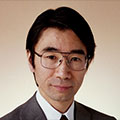
Prof. Shinichiro HoriuchiNihon University, Japan

Prof. Pongsathorn RaksincharoensakTokyo University of Agriculture and Technology, Japan
- Distinguished Chairperson
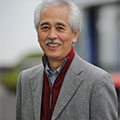
Professor Emeritus
Masato AbeKanagawa Institute of Technology, Japan
PlenaryⅡ Tuesday, September 13, 2022
Title: Automated, Electrified and AI—Challenges and opportunities for Vehicle Control Enthusiasts
Abstract
Over the past decade, two significant trends for ground vehicles are that they are becoming more automated and more electrified. In other words, vehicles today have faster and more capable actuators, which create new opportunities for safer/greener driving. Automated driving functions will have longer control time horizons, which is different from the past, when the vehicles were designed to provide instantaneous feedback to human drivers for direct vehicle dynamics control. It opens up the opportunity to explore new vehicle dynamics, along with the paradigm of more sophisticated driver assistance. Additionally, recent progress in “Big Data” and AI means there is now an alternative to the hand-tuned model-based control approach. All of these recent trends present significant challenges and opportunities to vehicle dynamic/control researchers.
In this plenary talk, the two speakers will draw from their decades of research experience to answer three questions: (i) What new actuators are becoming available on modern vehicles, and what are the grand challenges and major opportunities; (ii) What are the main differences between vehicles designed for automated driving functions vs. those designed for human drivers; and (iii) What are the pros/cons of data/AI based control design approach vs. the traditional model-based approach, and what are key factors in choosing between the two.
- Presenters

Prof. J. Chris GerdesStanford University, USA
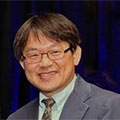
Doctor of Philosophy
Eric TsengFord Motor Company, USA- Distinguished Chairperson
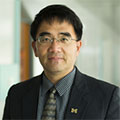
Prof. Huei PengRoger L. McCarthy Professor of Mechanical Engineering, Director of Mcity University of Michigan, USA
PlenaryⅢ Wednesday, September 14, 2022
Title: Safe vehicle handling, in any situation? – a continuous topic for vehicle dynamics engineers over time
Abstract
Safe vehicle handling is the most essential design goal in the development of vehicles. Is has been important since the early days of automobiles and may become even more important with autonomous driving functions and automated driving.
In the presentation we motivate vehicle stability as a key issue for safe vehicle handling. First, we recapture major definitions on handling, stability, and responsiveness. Then, we deal with basic and advanced methods of vehicle handling stability evaluation and give some practical examples. We refer to open-loop and closed-loop stability which may include the driver or other actuators. Each topic addresses past achievements, actual approaches, and possible challenges for the future.
- Presenters

Prof. Manfred PlöchlTechnische Universität Wien, Austria
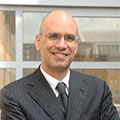
Prof. Gianpiero MastinuPolitecnico di Milano, Italy
- Distinguished Chairperson
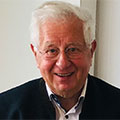
Professor Emeritus
Henning WallentowitzInstitute of Automotive engineering (ika) RWTH Aachen University, Germany
PlenaryⅣ
“Vehicle Dynamics for the future Autonomous”
Thursday, September 15, 2022
Title: Mobility For All - the Prospects of Advanced Vehicle Control in an Era of Automated Driving -
Abstract
In recent years, the movement toward CASE has accelerated, and in the automotive industry, which is facing an era of profound transformation,
global competition for the development of automated driving technology has intensified. Along with this, other industries such as start-ups and
IT companies have entered the market, and progress in sensor performance and smart technology has been remarkable. However, safe and secure automated driving cannot be realized without advanced vehicle movement control. In this talk, Toyota's approach to the development of automated driving technology will be presented, and the following will be addressed: i) the importance of vehicle movement modeling including the surrounding environment, ii) safe automated driving through vehicle control technology, and finally, iii) the realization of safe and comfortable vehicle driving trajectory and movement, all of which are considered to be a requirement for vehicle control in the future automated driving era. Automated driving technology is steadily moving in the direction of achieving the ultimate level of freedom – Mobility For All – at the dawn of a new mobility society.
- Presenter

Mr. Ken KoibuchiFellow, Vehicle Development Center - TOYOTA MOTOR CORPORATION
Chairman, Woven Core, Inc. - Woven Planet Holdings, Inc.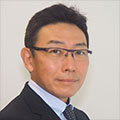
Dr. Yoshikazu HattoriSenior Staff Engineer, Woven Core, Inc.
- Distinguished Chairperson
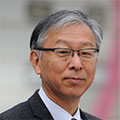
Prof. Hideo InoueKanagawa Institute of Technology, Japan
